1. Don't say "I accompanied my son to do his homework" as this is not what "accompany" means. You have to say "I accompanied [my son] to go [somewhere]". It could be the beach, the movies, the park, whatever. You can say "I helped my son do his homework." "Accompany" always has a direct object which is a person and an indirect object which is a place.
2. "Advice" and "advise" do not mean the same thing: "advice" is a noun and "advise" is a verb that means "give advice".
3. "Almost" and "always" don't mean the same thing: if you almost did something it mean...s you were about to do something and didn't; if you always do something it means you do it every day non stop.
4. App is pronounced "ap" not "A.P.P." It is not an acronym: it is an abbreviation of "application".
5. A person who applies for a job is called "an applicant" and not "an applier". Similarly, it is "consultant" not "consulter", "resident" not "resider", "precedent" not "preceder", "descendant" not "descender" and "confidant" not "confider". Also, "confidant" is a noun meaning "person with whom you confide" but "confident" is an adjective meaning "certain".
6. Do not say the next train (or bus) stop is "arriving". It is your train (or bus) that is arriving at the next stop and not the stop: you can say that the next train (or bus) stop is "coming up" though.
7. Asking somebody to do something is different from telling somebody to do something: if you ask somebody to do something then you say "please".
8. It's called a "ball point pen" not a "ball pen".
9. "Bathe" means "take a bath". "Breathe" means "take a breath".
10. "Belief" and "believe" do not mean the same thing: "belief" is a noun and "believe" is a verb. See also relief / relieve, half / halve, receipt / receive, conceit / conceive and deceit / deceive.
11. Borrowing means taking something you intend to give back: lending means giving something you intend to get back.
12. Bringing something means coming to a place carrying something. Taking something means picking up something and going away.
13. Buses and trucks are not referred to as "cars" in English. That being said, a section of a train is called a car.
14. Cafes are restaurants with tables outside that serve coffee. Starbucks is a coffee shop and not a cafe.
15. Cake is not a kind of bread: cake is made with eggs; bread isn't.
16. Cats (or dogs) is used to refer to cats (or dogs) in general. Thus, "I like cats" makes sense but "I like cat" does not.
17. It's called a "cell phone" not a "hand phone".
18. A certificate is different from a license: a license allows you to do something whereas a certificate shows you are qualified to do something. You aren't allowed to drive without a driver's license but you can speak English even if you don't have GEPT certificate.
19. Children is already plural. Do not ask "How many childrens do you have?"
20. "Choice" and "choose" do not mean the same thing: "choice" is a noun and "choose" is a verb that means "make a choice".
21. A clinic is smaller than a hospital and a grocery store is smaller than a supermarket.
22. Closets are small rooms for hanging clothing; a wardrobe is a piece of furniture for hanging clothing.
23. Coffee is uncountable because it is a liquid. That being said, you can order "a coffee" in a restaurant and they will give you a cup of coffee. Be careful though: a bag of ground coffee is "coffee" and never "a coffee".
24. Comfortable and comforting do not mean the same thing: a chair is confortable while a funeral for a friend or loved one is comforting.
25. Don't say "my company" to mean "the place where I work": only say "my company" if you own the place. Also, don't say "my company" to mean "the people I work with": what you really mean is "my coworkers".
26. Credit is a good thing: it means that you are owed something in exchange for goods or services. When the bank credits your account it means you now have money you can take out and spend. A lot of people say "credit" when they mean "debt". A "credit card" is a card is not actually a card that gives you credit: it is a card that gives you debt.
27. Crime is often used as an uncountable mass noun. After all, if you literally did kill two birds with one stone would that be one crime or two crimes?
29. If you add the letter 'e' at the end of a word, it can change the pronunciation and meaning of the word: for example, if you add an 'e' to man (a male adult) it becomes mane (a lion's hair and beard), if you add an 'e' to them (those or these) it becomes theme (a subject or topic), if you add an 'e' to kit (a set) it becomes kite (a flying toy on a string), if you add an 'e' to dot (a speck) it becomes dote (to love or cherish) and if you add an 'e' to cut (a slice or to slice) it becomes cute (adorable).
30. "Effect" and "affect" do not mean the same thing: "effect" is a noun and "affect" is a noun that means "have an effect on".
31. Electric means something you plug in. Electronic means having a computer chip (usually for memory). Electronic equipment is all electric but electric equipment is not all electronic.
32. Equipment is uncountable because it is a collective noun: you don't carry "equipments" when you go camping; you carry "equipment".
33. The phrase "Everybody doesn't" sounds awkward: you should say "Nobody does", unless of course you actually meant "Not everybody does".
34. Excited and exciting do not mean the same thing: if a movie is exciting then you are excited while watching it. See also amusing / amused, boring / bored, frightning / frightened, intriguing / intrigued, interesting / interested and terrifying / terrified.
35. Family is a collective noun and refers to a group. The plural, families, means "more than one family". When you say "I need to feed my families" it sounds like you have more than one wife and they each have children.
36. You should say "There are fewer people in the class this week" and not "There are less people in the class this week" because people are countable. Also, we say "How many people?" and not "How much people?" and "A few people" and not "A little people".
37. Finding something means locating something that was lost: it does not mean looking for something and not finding it. When you say "I spent an hour finding the store" you mean "I spent an hour looking for the store."
38. In English, "foot" refers to the part of the leg below the ankle and not the part of the leg below the knee (known as the shin bone or the calf muscle). Oddly enough, when you buy a "chicken leg" at KFC you are just getting the part of the leg below the knee.
39. Don't say "I had dinner with friend." You should either say "I had dinner with a friend" (in which case it is a date) or "I had dinner with friends." (in which case it is a dinner party).
40. Fun and funny do not mean the same thing: anything you enjoy is fun but funny things make you laugh.
41. Furniture is uncountable because it is a collective noun: you can have tables and chairs but they are furniture and not "furnitures".
42. Fur is hair on animals. The hair on my arms and legs is not called "fur".
43. Glass is uncountable because it is a mass noun. "A glass" is a cup made of glass. A cup that is not made of glass is a cup, not a glass.
44. Good morning, good afternoon and good evening are greetings. You say "Good night" though when you are saying goodbye (and going to bed).
45. A graduate student is not simply a student who has graduated: it is a student who has graduated and is now studying for a Master's degree or PhD.
46. Hair is usually considered a mass noun and therefore uncountable. You have thousands of hairs on your head and you normally don't count them.
47. Hamburger meat is ground beef. It is uncountable because it is a mass noun. "A hamburger" is a sandwich consisting of a bread bun with cooked hamburger meat inside. It is not a hamburger if the meat is pork: that would have to be called a "pork burger" in analogy with "chicken burger". Ham in a bun would be a "ham sandwich" and not a hamburger.
48. Getting "high" does not mean getting "excited": it means getting intoxicated by taking drugs.
49. Homework is uncountable because it is a collective noun: the plural of "assignment" is "assignments" and not "homeworks".
50. Hot dogs are frankfurter sausages in a bun. They are not sandwiches.
51. Houses are buildings that people live in. Your apartment is not a house because it is not its own building. "Apartment" is a noun and "apart" is the verb: by definition, apartments are "a part" of a larger building. Thus, if you own a store and you live upstairs then the building you live in consists of a store with an upstairs apartment: it is not what westerners would consider a house.
52. Ice cream is uncountable because it is a mass noun. That being said, in British English "an ice cream" refers to what in American English is called "an ice cream cone" which both mean an ice cream cone with ice cream inside.
53. You don't "join" a wedding or a party. You "go to", "attend" or "participate in" a wedding or party. "Join" only makes sense when you join a group such as a sports team or a club. You don't "join" a party because when the party is over you go home.
54. Knowledge is different from information: knowledge is something you get from experience; you can get information from a book or from the internet. Also, information, knowledge and news are all uncountable. Do not say "I have an information" or "I have a knowledge" or "I have a news".
55. You should say "I should eat less fat" and not "I should eat fewer fat" because fat is uncountable. Also, we say "How much fat?" and not "How many fat?" and "A little fat" and not "A few fat".
56. Letting somebody do something means allowing them to do something. If you force somebody to do something then you are making them do something.
57. "Menu" does not mean "food". It is not correct English to say "What is the menu at this restaurant?" but rather "What is ON the menu at this restaurant?". The word "menu" actually means "list" and it could refer to any list such as a menu of links on the home page of a website.
58. Morning is from when you get up to 12:00. Afternoon is from 12:00 to when it gets dark. Evening is from when it gets dark to when you go to bed. Morning is the start of the day and evening is the start of the night.
59. It is wrong to say "I like the NBA and the MLB". It's okay to say "I like the NBA" because that means "I like the National Basketball Association" and you are talking about a specific association but when you say "I like the MLB" you are saying "I like the Major League Baseball" and it sounds as if you are talking about a specific baseball. You should say "I like watching NBA and MLB games". Adding the word "games" also helps remind people you are talking about sports if they don't immediately know what the acronyms NBA or MLB mean.
60. The phrase "NEW OPEN" makes no sense. First of all, it should be "NEWLY OPENED". "Newly" here is an adverb that specifies when the store was opened (recently). "Open" can be a verb as in "Open the door" or it can be an adjective as in "The door is open". We could say a store is open and specify the opening hours from 9:00 am to 9:00 pm. But when a new store has been opened it is different from opening the store every day. When you are talking about a store opening for the first time, you don't say "The store is open" but rather "The store has been opened" meaning it is now open for business (as a result of having been opened for business). Think of it this way: if a store opens at 9:00 am every day then at 9:05 am it is "newly open" (I guess) but is that what the sign means or does it mean the store has been "newly opened" for business?
61. Next Thursday means "this coming Thursday" and does not necessarily mean "Thursday next week". On a Monday, for example, "next Thursday" means "Thursday this week".
62. "Notice" and "notify" do not mean the same thing. You may notice a burgular breaking into your neighbour's house and not notify the police.
63. Ob-gyne is an abbreviation of "obstetrician-gynecologist" and should not be pronounced "Oh-bee-guy-knee".
64. "Okay" can mean "Yes" if you are being asked for permission ("Can I watch TV?") or accepting an offer ("Do you want some pizza?") but it doesn't make sense as an answer to a yes/no question like "Are you a student?" Also, "okay" is a possible answer to "How are you?" but it doesn't mean the same thing as "Fine": if a soldier in WWII said on the radio "We are all OK" it didn't mean they were all fine; it meant none of them were dead.
65. Open does not mean "turn on" in English and close does not mean "turn off". When you open a program on your computer, the analogy is with opening a window and not turning on a machine.
66. Pan and pen are not pronounced the same way. Nor are fly and fry. Thus if you were to say "I have a flying pen" then people will think you have a pen that flies and not a frying pan.
67. Paper and pepper are not pronounced the same way: paper is for writing whereas pepper is for cooking.
68. Paper is uncountable because it is a mass noun. "A paper" is a kind of homework assignment.69. If something happened in the past then it is no longer true: for example, if you say "I had a dog" then you don't have the dog anymore. "I have had a dog for five years" is not the past tense because you still have a dog.
70. Pasta (including spaghetti and macaroni) is uncountable. It is the material used to make Italian noodles. Note that spaghetti is a kind of pasta but not all pasta is spaghetti: pasta comes in different shapes and it is only the long stringy pasta that is called spaghetti.
71. Piece should not be used as a default measure word: if someone give you something "in pieces" then it is broken!
72. Rice is uncountable because it is a mass noun. You can count individual grains of rice but you buy rice in bags and you eat rice in bowls.
73. Sandwiches are not necessarily triangle shaped. A hamburger, for example, is a kind of sandwich.
74. Scared and scary do not mean the same thing: if a movie is scary then you are scared while watching it. We do not use "scaring" as an adjective.
76. Shirt and shorts are not pronounced the same way: your shirt covers your chest whereas your shorts cover your bottom.
77. Sixty and sixteen are not pronounced the same way: a sixteen year old is a teenager whereas a sixty year old is old enough to consider retirement.
78. Soap and soup are not pronounced the same way: soap is for cleaning and is not something you can have for dinner.
79. Sofas are soft chairs that two or more people can sit on. If the chair is for one person then it is not a sofa, no matter how soft it is.
80. Sound (or noise) is usually considered a mass noun and therefore uncountable, except when we are talking about sudden discrete noises like gunshots or screams.
Chips are not cookies: chips a hard when they are fresh and soft when they go stale but cookies come out of the oven soft.
81. Staff is uncountable because it is a collective noun: the plural of "employee" is "employees" and not "staffs". You can also say "staff member" and "staff members" to mean "employee" and "employees", respectively.
82. "Steak", by default, means "beef steak". When you say "pork steak" you mean "pork chop" (if it has a bone) or "pork cutlet" (if it doesn't have a bone). Similarly, we say "lamb chop", "ham slice", "fish filet" and "chicken cutlet" and not "lamb steak", etc.
83. Suitcases that you take to the airport are called your "bags" and not your "boxes". It is true that in British English a "pencil case" is a "pencil box", oddly enough.
84. Suites are luxury hotel rooms: they are not single room apartments. Single room apartments are called "studios".
85. Taking often implies stealing: if you say you went to the store and "took" something you had better make it clear that you bought it first.
86. When you "teach" someone you are taking the role of a teacher. When dealing with superiors or equals you should avoid using the phrase "I will teach you how to..." and say instead "I will show you how to...". "I will teach you" is fine if you are talking to your children or your students.
87. "The" is used to refer to someone or something specific. For example, you might say "A boy lived at home. The boy got a call from a girl. The girl was his neighbor." Here we refer to "a boy" and "a girl" the first time they are mentioned and "the boy" and "the girl" the second time they are mentioned because the second time they are mentioned you know that they are the boy and girl we were just talking about in the previous sentence. "The" is used between two people when both people know the person or thing being referred to. For example, if I tell you to "Get the Coke from the refrigerator" you know what refrigerator I mean and that there is a bottle of Coke in there. Similarly, you can tell me "Turn on the TV" and I don't have to ask which TV you mean. This is why we usually say "Go to the bank" or "Go to the post office" because we usually have a specific bank or post office in mind: otherwise, we could just say "Go to a bank" to "Go to a post office." One exception to this is when we are talking about instruments: we can say "I can play the guitar" or "I can the piano" and we aren't talking about a specific guitar or piano. We could also say "I can play a guitar" or "I can play a piano". This is not necessarily wrong, although some native speakers might insist that you have to use "the" in these sentences. Note that leaving out an article altogether would definitely be wrong: you don't "play guitar" in the same manner that you "play soccer": it is not a game. Nor do you "play the computer" because it isn't an instrument.
88. "Thigh" and "hip" do not mean the same thing: the thigh is a muscle in the upper leg and the hip is a bone immediately below the waist.
89. Time is uncountable because the units that we use to measure time are arbitrary. Thus we say "How much time?" and not "How many time?" Money is uncountable for the same reason.
90. Toast is sliced bread that has been placed in a toaster and toaster. The toast wasn't toast before it was toasted.
91. Traffic is uncountable because it is a mass noun. In particular, traffic is a measure of the _density_ of cars, motorcycles, scooter, trucks and buses on the road and not the number of them: a hundred cars on a multi-lane highway does not create the same amount of traffic as a dozen cars on a city street.
92. Feeling "uncomfortable" does not mean feeling "sick".
93. Until now means "up until this moment". When my wife said "I am pregnant until now" I said "What are you talking about? You are _still_ pregnant."
94. "It used to" and "It is used to" do not mean the same thing. "Used to" is used to refer to something that happened in the past as in "It used to work (but doesn't anymore)" or "I used to watch cartoons (but I don't anymore)". "Is used to" is used to denote a use for something as in "A key is used to open doors" or ""Is used to" is used to denote a use for something". Do not use "is used to" to mean "usually".
95. Usually means "most of the time" as opposed to sometimes which means "some of the time". Here, "most" means "over 50%". Thus, you can say "I sometimes have toast for breakfast but I usually have eggs and rice." and it makes sense if you have egg and rice over 50% of the time and, thus, have toast less than 50% of the time. Using "usually" automatically implies that you sometimes do other things but using "sometimes" doesn't necessarily imply you do something else more often. For example, you could say "I sometimes eat at McDonalds, sometimes eat at KFC and sometimes eat at Subway" and you could eat at all three places 33.3% of the time.
96. Vocabulary is uncountable because it is a mass noun: the plural of "word" is "words" and not "vocabularies".97. Watching TV is an activity that most people do every day. Seeing a specific movie is something most people do just once.
98. "Well" does not mean the same thing as "good". "Well" is either an adverb as in "He can sing well" or an adjective as in "He went home because he is not feeling well".
99. Wine is, by default, made from grapes. Wine made from grapes is called "rice wine". Beer is not considered a kind of wine by native speakers of English.
100. Don't forget to pronounce the 'zes' sound in "realizes", the 'ses' sound in "buses" nor the 'ces' sound in "dances".











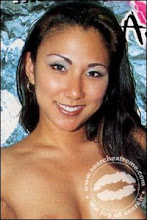






















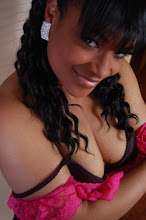
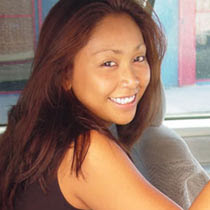

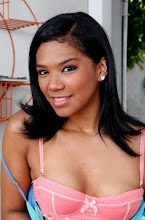











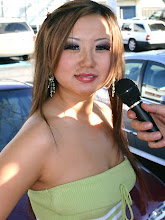

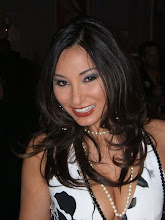









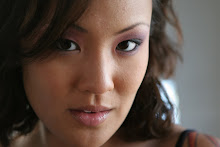

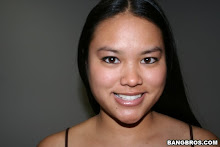





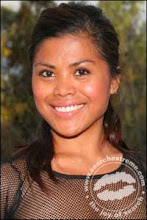






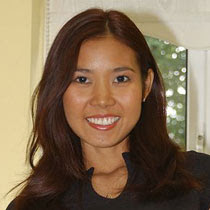




















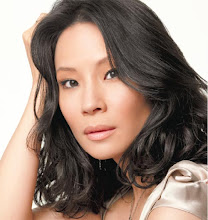



























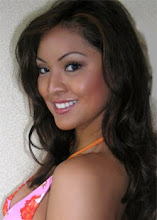


























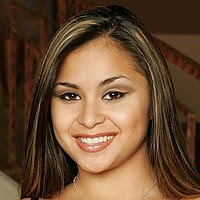




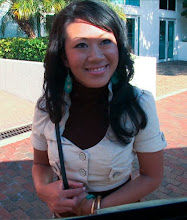







































No comments:
Post a Comment